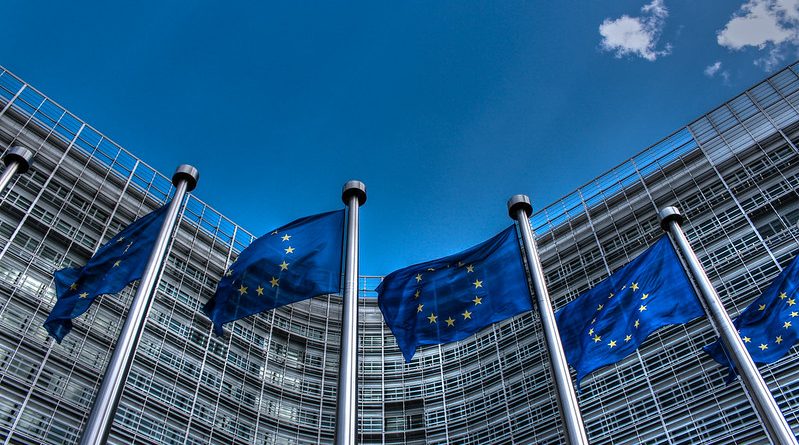Corruption and Aid Diversion Corrode Former Eastern Bloc
Stephanie Miller
International News Editor
Aid diversion from rural agricultural communities continues as systemic corruption corrodes what is left of Eastern European democracy. A New York Times investigation recently found that national politicians across the European Union co-opt millions of dollars in farm subsidies each year, exploiting European taxpayers and threatening the livelihoods of thousands of agrarian communities.
“The prime minister of the Czech Republic collected tens of millions of dollars in subsidies just last year,” the report describes. “Subsidies have underwritten Mafia-style land grabs in Slovakia and Bulgaria.”
Perhaps the most shocking incidents of corruption occur in Hungary, where Prime Minister Viktor Orban auctions off thousands of acres of state land to his family members and close associates, including one childhood friend who has become one of the richest men in the country. However, Orban isn’t the only head of state collecting agriculture subsidies. According to the New York Times report, Czech Prime Minister Andrej Babis collected at least $42 million in agricultural subsidies last year.
Because most of the auctioned land is arable, these new owners in turn now qualify for millions more in European Union subsidies. A statement on Hungary’s situation from economist and Czech senator Lukas Wagenknecht corroborated the findings: “The European Union is paying so much money to an oligarch who’s also a politician. And what’s the result? You have the most powerful politician in the Czech Republic, and he’s completely supported by the European Union.”
Farmers daring to criticize such patronage systems say that they now face surprise audits, unusual environmental inspections, and denials from grant aid from the government. One rural economist József Angyán was documenting the government’s dubious land deals and mistreatment of small farmers until he mysteriously disappeared from public life in 2014. Italian mobsters allegedly murdered Slovakian journalist Jan Kuciak while he was investigating organized crime’s infiltration of the European farm industry.
Despite such systemic abuse, governing institutions seldom interfere in national corruption, instead deferring to elected leadership to root out legalized corruption. Denis McShan, a senior advisor at Avisa Partners, told Carnegie Europe that the European Parliament “is not a single functionary that will ‘de-corrupt’ Europe”. Despite Transparency International ranking Bulgaria at the bottom of its 2019 European Corruption Perception Index, Politico reports that the European Commission began the move to end its corruption monitoring program in the country.
On the European Union’s approval of an additional €25 million in budget support assistance to Moldova, Commissioner Johannes Hahn insists that this “demonstrates the EU’s strong and continued commitment to the reform path of Moldova”. This latest installment – the fourth since July 2019 – is meant for anti-corruption measures and rural and agricultural development. However, given Moldova’s history of corruption in the agriculture sector, there is no guarantee that these funds will be distributed accordingly. In 2017, anticorruption prosecutors arrested 12 people, including Agriculture and Food Industry Minister Eduard Grama, on charges of suspected involvement in a scheme to illegally lease land and buildings owned by the National College of Viticulture and Winemaking, according to Radio Free Europe.
The idea of governing institutions like the European Union continuing to fund historically corrupt government sectors disturbs many, including those within the EU itself. Mina Andreeva, a spokeswoman for the EU’s anti-fraud office, denies the EU’s culpability in the crisis, stating that it is not the EU’s job to ensure the governments spend farming subsidies correctly.
“We are not here to replace national governments,” Deutsche Welle reports Andreeva saying. “We cannot and will not do the work for them.”
While the EU and national politicians alike continue to evade responsibility in oligarch-riddled states, there is one country in the former Eastern bloc straining to end its internal battle against corruption. Journalist Nastya Stanko spoke to PBS on Ukraine’s two-front conflict with both Russian-backed separatists and itself, noting that although Ukraine is the only European country currently at war, the government is still attempting to taking the steps necessary to end political malfeasance. Though the election of President Volodymyr Zelensky made international headlines due to his status as a former comedian, Stanko notes that Ukrainians see this seemingly odd event as a step in the right direction.
“He became the president because people of Ukraine decided that they don’t want to see these old politicians who were corrupted and who are corrupt,” Stanko said. “The Ukrainian people decided that, OK, let it be this new guy from nowhere, from comedy, not someone who was in politics already.”



